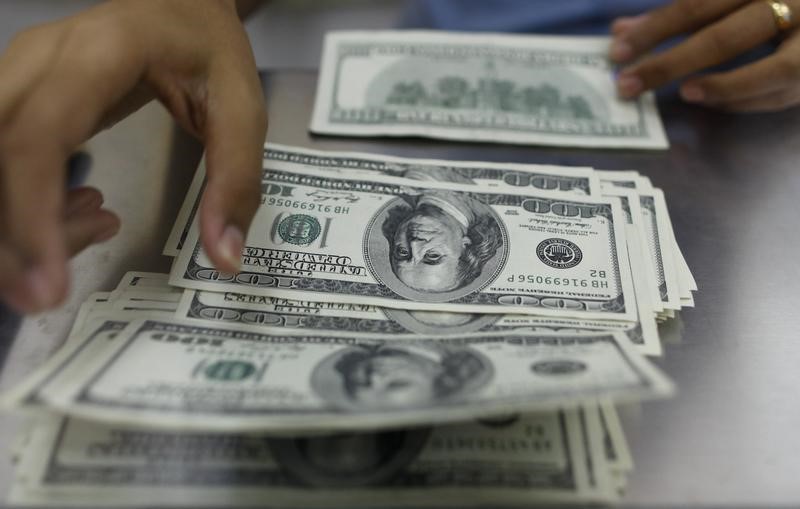(Bloomberg) -- Lebanon’s currency peg, an anchor of financial and social stability for more than two decades, is crumbling and attempts to stabilize the exchange rate are adding to the chaos.
Dollar shortages culminated last month in the government’s decision to default on its debt for the first time. Now, a series of new measures imposed by the central bank have made clear that authorities are slowly breaking away from the fixed exchange rate of 1,507.5 to the dollar.
Starved of hard currency, Lebanese banks have stopped dispensing dollars to clients entirely after months of setting withdrawal limits. In its latest steps, the central bank has instructed lenders to allow withdrawals from foreign-currency accounts in Lebanese pounds only but at a “market rate” determined by banks themselves. The central bank also told money transfer companies that it would buy what they receive in dollars from abroad for pounds. It’s offering them 3,625 pounds per dollar, a huge premium over what remains its own official rate.
The goal of the central bank is to absorb dollars and channel them into a currency trading platform it wants to start with lenders and licensed exchange bureaus in the coming weeks to help determine a single daily exchange rate, according to people familiar with the matter. By making it harder for businesses and ordinary people to get hold of physical dollars, however, the measures have only accelerated the pound’s depreciation and exacerbated the uncertainty.
The Lebanese pound was trading at 3,350 on the parallel market on Thursday, with some exchange houses pricing at nearer 3,700, more than 50% weaker than the official peg that is now effectively in place only for importers of essential goods; oil, wheat and medicines.
Fearing their savings will be wiped out and hit by spiraling inflation, hundreds of Lebanese braved the restrictions imposed to contain the coronavirus outbreak and resumed protests this week -- burning debris in the street and blocking roads with their cars. The central bank intervened briefly in the parallel market to try to slow the depreciation but stopped after the exchange rate continued to slump, said the people, asking to remain anonymous as the information is not public.
“They might be able to temporarily hold on to a rate for a few days, but the trend is clear -- there aren’t enough dollars in the system to support a peg, or a more loosely defined one for that matter,” said Nafez Zouk, an emerging-market strategist at Oxford Economics. “It’s just a shifting of losses and insolvency into local currency.”
Buoyed for years by inflows from Lebanon’s sizable diaspora, the peg became a burden as repeated failures to reform the economy and stamp out corruption shook confidence. Financial aid from oil-rich Gulf countries and Western allies, which pulled Lebanon back from the brink of financial crisis in decades past, has also dried up.
With foreign-currency reserves at critical levels and after a default on some $30 billion in Eurobonds last month, the government has approached the International Monetary Fund to discuss its draft plan to rescue the economy in the hope of getting aid. The blueprint includes a gradual change in the peg starting in 2021 -- when the pound would weaken to 2,607 per dollar.
Fast Unpegging
The depreciation on the unofficial market has been anything but gradual, however, with the pound weakening some 40% in the past three months alone. Food prices have gone up by 58% since mid-October, when nationwide protests erupted and eventually forced the collapse of a government.
Consumers Lebanon, an independent group that tracks food prices, has warned that inflation is only expected to accelerate and could lead to social implosion.
With almost half of Lebanon’s bank assets parked at the Banque du Liban, or BdL, as the central bank is known, the goal has been to soak up as much foreign currency as possible, restocking holdings ravaged by outflows amid the crisis. It’s challenge now is to unify multiple rates that have sown uncertainty and generated losses for businesses and consumers alike.
“Seems like BdL is trying to reduce the FX mismatches it has by turning its dollar problem into a lira problem, given that it can print its own currency,” Zouk said.
